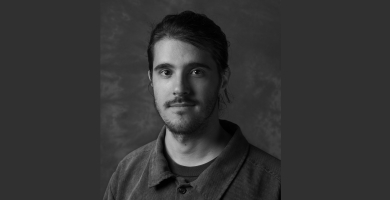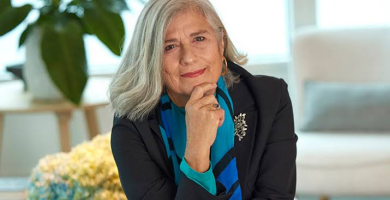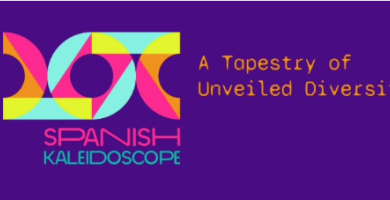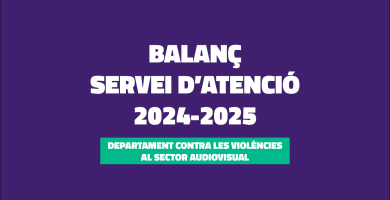
RUBÉN SECA: "The short film is always perceived as the little brother of films, but I think that’s an erroneous point of view that needs to change."
We interviewed Rubén Seca, founder of the production company Shoji Films. We talked to him about his work as an independent producer focused above all on the world of shorts and about his future projects, such as his first feature film.

When did your interest in the world of film arise and why did you decide that it was what you wanted to devote yourself to?
I think unconsciously my maternal grandfather instilled a very deep love of film in me. When I was little he often showed me films like Dersu Uzala by Akira Kurosawa, and films by David Lean such as Oliver Twist and Lawrence of Arabia. I was surprised as an adult and I was starting out in my film-loving stage, when I watched them thinking that I didn’t know them, and realized that I knew some of them almost off by heart, without relating them to the title of the film. My conscious interest in film began while studying law, when I discovered that I’d chosen the wrong profession and that my great passion was for film. Despite everything, I completed my legal degree, but at the same time I began to work as a film critic in festivals and to write in blogs and magazines, going almost daily to the Filmoteca de Cataluña, which was my first film school. I then studied Film Directing at the ECIB and it was then very clear for me that that was what I wanted to do. And I’m now seeking the best way to get ahead in such a complicated sector, combining my two facets as a director and producer.
Photo: Óscar Fernández Orengo
How did Shoji Films arise?
Shoji Films was originally created as an unregistered trademark while I was studying at the ECIB in 2017, with a classmate, Marc Algora (who you recently interviewed, I see), and we made video clips and shorts without any resources.
In 2021, when I’d finished studying a couple of years earlier, the initial project wasn’t working very well any more, and with another colleague we decided that we wanted to create our own production company. And so I was inspired to convert the previous student project into a company, in order to be able to enter the industry, and that’s how Shoji Films SL was created.
Why the name Shoji Films?
In Japanese, a “shoji” is the name of the traditional Japanese door, which is represented on our logo. Originally it was Marc Algora who chose the name, and I really liked his suggestion. At the time Yasujiro Ozu was my favourite director, and I liked the idea of having this Japanese presence in the name and in the logo.
You are defenders of short films, which often don’t receive the recognition they deserve. What is the importance of the short in the world of film?
The short film is always perceived as the little brother of films, but I think that’s an erroneous point of view that needs to change. Like in literature you have novels and short stories, it’s the same in film. There are feature films and shorts, and it’s simply a different format, which includes shorter, briefer stories, but which are still film. The problem is that the short film industry hardly exists. In the end, it’s true that many directors end up using the short format to show their cinematographic style, their talent, and it’s thanks to the success of a short that they suddenly have the possibility to produce their first film. And it’s also good that this is the case. And in this respect, we also like to back new filmmakers in our productions. But we like to defend the short as a separate format, with its intrinsic artistic value.
What makes you decide to support a project?
Producing a short, although it may not seem so, can easily involve between two and three years of work, from when the idea for the script arrives, until the subsidies, audits, etc. are closed. It takes a great deal of dedication and energy. That’s why it’s very important for us to really fall in love with the project, and for it to make us dream of helping to bring it to fruition, so that we’re motivated throughout this process which lasts years. But that’s precisely why it’s so beautiful, when you suddenly release a short in the first festival, and you see the director’s initial dream come true, and you forget all the complications you encountered along the way.
What are the main difficulties you come across as an independent production company when starting out with a new project?
The most complicated part is always raising the private funding. This is especially difficult with shorts because, as there isn’t an industry, it’s difficult for there to be a financial return. Some shorts do have one, and they make quite a bit of money based on awards in festivals and sales to certain platforms, but we’re talking about such an exceptional minority that as a general rule it’s better not to consider it as an option. The main difficulty is really that you need to raise this private funding at the same time as the public subsidies.
What production do you think has marked you the most as a production company?
To date, Demà was undoubtedly the one that most generated that sensation of happiness, of having made it all the way, as it was the first project in which we single-handedly raised both the ICEC and the ICAA subsidies, and it did well in festivals. But we’re currently working on another two very nice projects which have motivated us a lot. On the one hand, our first animation short, entitled Cap al cel and directed by Nicolás Sole, which we think will be our major project in the near future (we’ve been in full production since October 2024, and we’ll end in September 2025 if all goes well). And, on the other hand, my first documentary feature film entitled Los Cangrejos, which is at the same time the production company’s first own feature film production, doing everything from scratch as the main production company, with Toned Media and Piensan las manos as minority co-production partners.
And which production was it most difficult to carry out?
We’ve been six years with another documentary feature film, entitled El projecte Pisoft, about the construction of an almost self-sustainable and bioclimatic house, in the middle of an urban area in Rubí, built by the inventor and genius Edu Sentís. In view of its specific conditions, this film has so far been fully financed by us, but for months now we’ve been trying to raise the funding we’d need to be able to finish it, as we still have to do the editing and all the post-production. But it’s turning out to be very difficult...
Have you shot any productions in the city of Barcelona? What was that experience like?
Yes, we’ve already had some productions in Barcelona. Indeed, our first short as a production company was Mortis causa, at the beginning of 2022, and it was quite a learning experience. There were difficulties like creating artificial rain in the Gothic Quarter but, with the help of the BCN Film Commission and others, we were given good advice about how to do these things and we learnt a lot. Then, with more means, we had much more ambitious productions of shorts, like La filla de ma mare, directed by Carles Gómez Alemany, in co-production with Cornelius Films. In general, the experience is positive; we love our city.
You don’t just produce shorts. This year you’ve started out in the world of feature films. Why this change?
For the moment, we want to continue producing shorts, and we’re hardly working on the next two projects that we want to fund. But we’ve seen that, if we want to survive as an independent and film d’auteur production company, which in itself is almost a utopia, we have to try to begin to do feature films, to try to grow as a company and possibly generate more income. And, at the same time, we love cinema and so we also want to do feature films. We’re beginning with the documentary, because at the moment it’s what’s the most feasible for us as a small production company. But we’re also already beginning to prepare our first fiction feature film, by Estefania Ortiz, the director of Demà, and we’re very excited about being able to support a director for whom we’ve already produced a short, to take these first steps together toward the first fiction feature film.
Photo: Paula Barranco
You’ve finished shooting your documentary feature film Los Cangrejos. Can you tell us a little about your experience with this shoot and how you came across such a personal and necessary story?
When my paternal grandfather died, I discovered the memoirs of my great-grandfather, in which he explained all his experiences of the Spanish Civil War in Soria, and I was shocked that nobody had talked to me about this before. That was how in a certain way I inherited a series of family scars, and I felt the need to make a film to tell both my family’s story and other stories from the province of Soria that I gradually discovered on beginning to do more research.
The shooting experience was wonderful, because I involved my family from Soria, uncles and aunts and cousins who live in the city of Soria, to portray our ancestors. And we did the shoot with a small team of people, over several years, with Neil Murphy and Víctor Blanes as directors of photography, and with Maximiliano Martínez as the sound director, and it was like a big family shoot, with my real family and close friends like them.
We’re tackling the post-production now, but we’re very eager to finish the film and be able to share it.
We’ve started a crowdfunding to raise the private funding we need, and it also has more information about the film.
In the last edition of the Filmets festival you received the Emerging Producer Award – PAC. What does this award represent for you?
It’s a boost of energy and motivation to keep going and resisting in such a complicated industry. We were really pleased to receive this recognition, and apart from the award you receive a year’s membership of the PAC which is very useful to us, and mentoring by Ricard Sales, who’s being very generous and from whom I’m learning a lot!
What do you think would need to be done for shorts to have more life on the big screen beyond festivals?
Maybe it’d be good to recover the old idea of always screening a short and a feature film in commercial cinemas, but it’s not easy either, because they’d have to be complementary works of art to justify showing them together.
I think that, rather than in cinemas, it’d be important to generate a short film industry and give it more space on television, platforms, etc. Some platforms already do this, such as, for example, Filmin, which always does good work with everything, and which gives visibility to many short film festivals on its platform.
In cinemas, all I can think of is the possibility of offering sessions of several shorts, like a pack of 5-6 short films with a screening lasting 60-70 minutes, maybe with a lower ticket price, to see whether there really is an audience for this. Because I’m sure this audience does exist, but the only possibility they have is local film festivals which screen shorts in our city.









